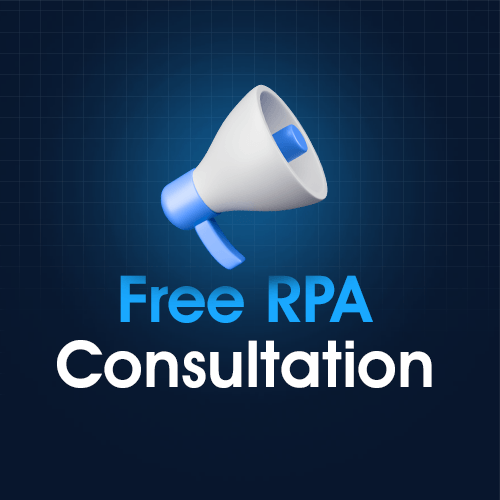RPA Security Questions to Ask in 2023

Robotic process automation is a true game changer for organisations. It completes work equivalent to thousands of hours in a few seconds. For example, our employee onboarding bot significantly reduces the time it takes to onboard an employee. It sends all the relevant documents, enter the information into the system after receiving the documents, and conduct follow-ups regarding miss documents.
As RPA saves time and streamlines operations, more and more organisations are adopting it. However, as with every technology, cybercriminals are finding loopholes and exploiting them for their own benefit. If you wish to stay safe and ensure that your RPA solutions do not contribute to data hacks, then you need to ask RPA security questions.
What is RPA Security?
If you don’t have the answers for these questions, then you need to re-evaluate your cybersecurity practices. RPA security ensures that your automated solutions don’t have to deal with downtime, hacks, or any other malicious acts. Agile Managex Technologies recommends treating RPA solutions as your digital employees. So, ensure the same security measures for them as your employees.
RPA Security Questions 2023
- What data or systems can the RPA solution access?
If you cannot answer this question, then you are more likely to face a cybersecurity breach. The reason is that you don’t even know which systems or data to protect or monitor. It could be that your RPA solution is accessing customer data without you knowing about it.
If it gets compromised, the cybercriminal will gain access to the customers’ data. It will undermine your organisation’s reputation and significantly impact customer trust. On top of it, your business may be subject to regulatory fines. Nowadays, these fines can rise up to millions of dollars. So, don’t take cybersecurity lightly.
- Who has access to the RPA solutions?
The next question you must answer is who has access to the RPA solutions. When you know the persons with access to the solution, then you can implement robust security protocols such as two factor authentication. These protocols not only enhance security bit can help you monitor user activity. It is imperative that organisations assign each bot a unique identity and ensure limited access to it.
- What process do I have for retiring RPA bots?
Before reading on, refer to ‘When to Retire an RPA Bot’. Now you know when to retire an RPA bot. However, retiring an RPA bot is only the beginning. You need to ensure that the retirement process addresses security concerns. It is quite common for organisations to remove bots without revoking their access to the data and systems. If you think this does not happen, think again.
The 2021 Colonial Pipeline attack happened after hackers gained access to an unused virtual private network account. Instead of revoking the account’s access after it was no longer in use, the organisation unknowingly kept it in circulation. The cybercriminals managed to use the account to gain access to the company’s networks and disrupted the company’s operations.
- Did we compromise on any cybersecurity aspects when implementing RPA?
Unfortunately, it is quite common than most people would like to admit. In our experience, we regularly get requests to expedite the work to meet the deadline. When workers cut corners to meet deadlines or budgetary targets, it is quite likely that they will compromise on key aspects of the project, including cybersecurity. If you cannot answer this question with a firm ‘No!’, then you need to assess the solution for security lapses.
- Do you have the latest tools, technologies, and updates in place?
If the answer is no, then you are missing out on vital security features. The latest tools, technologies, and updates ensure that your RPA solutions/infrastructure are up to date. They provide an additional protection layer. Using legacy systems will make it easier for cybercriminals to gain access as the developers may not be providing support for those technologies or tools.
Conclusion
Contact us if you need RPA solutions that don’t compromise on any aspect of cybersecurity. Not only does Agile Managex Technologies offer RPA solutions in Dubai and globally, but it also specialises in cybersecurity. We help organisations protect themselves against internal and external threats.

Leave A Comment